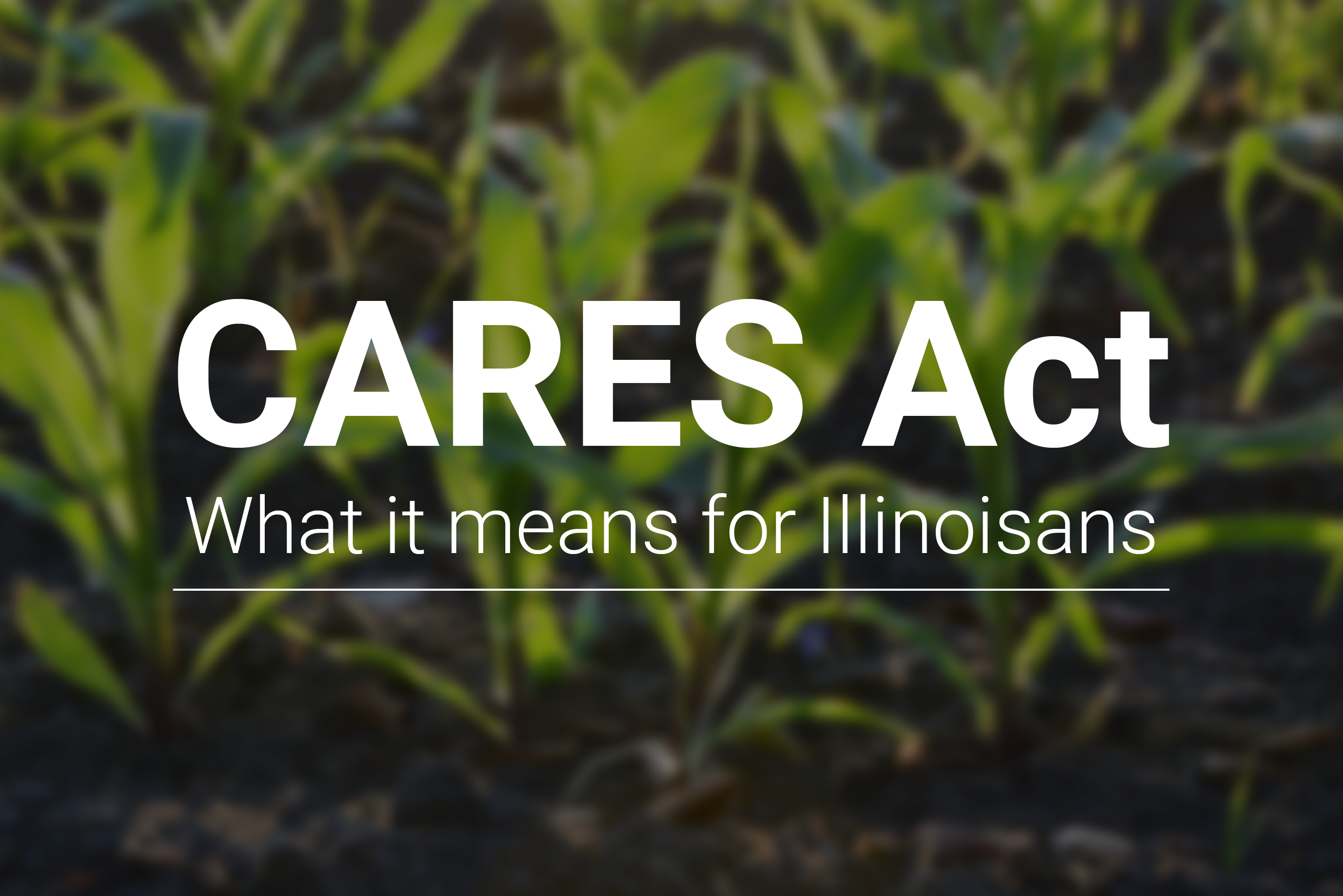Congress approved and the President has signed the Coronavirus Aid, Relief, and Economic Security Act (CARES) today. The $2.2 trillion economic rescue package provides help for families, small business, hospitals, local governments and others. Below is a brief outline of the CARES Act:
HELP FOR FAMILIES
Up to $1,200 in economic recovery checks to individuals ($2,400 for joint filers) with an additional $500 for each dependent.
Income eligibility based on 2019 returns if filed, or 2018 if unfiled:
- Individuals with Adjusted Gross Income (AGI) below $75,000 are eligible for $1,200
- Married with AGI below $150,000 are eligible for $2,400
- Phases out above these thresholds to zero for those making more than $99,000 individually and $198,000 jointly.
The U.S. Treasury will direct deposit the money in your bank if they have that information from your 2018 or 2019 tax return.
Seniors: Appropriates $820 million in Older Americans Act funding for senior meals services and family caregiver programs.
Provides $8.8 billion in supplemental funding for child nutrition programs, $450 million for TEFAP (food pantry funding), and $15.5 billion in additional SNAP funding.
Student Loan Debt: Suspends student loan monthly payments for 6 months
Transit; Allocates $25 billion in federal transit formula funding to keep public transit operating throughout Illinois in order to ensure continued access to jobs, medical treatment, food, and other essential services. Illinois transit agencies will receive an estimated $1.6 billion in federal transit funding including $800 million for the CTA, over $400 million for Metra, and over $100 million for Pace.
Unemployment Assistance: Provides for Unemployment Assistance for up to 4 months.
- Creates a temporary Federal Pandemic Unemployment Assistance Program through December 31, 2020 that provides an additional $600/week in unemployment benefits for up to 4 months.
- Self-employed and contracted individuals unable to work are eligible for a federal compensation payment equal to 1⁄4 the state’s average weekly benefit plus the $600/week Federal Pandemic Unemployment Assistance.
- Recent college graduates and new job entrants could receive a federal benefit equaling $300/week.
Eviction Moratorium: 120-day eviction moratorium for renters in federally-assisted housing.
Mortgage Forbearance: Prohibits foreclosures on all federally-backed mortgage loans for 60-days. Provides up to 360 days of forbearance for borrowers of a federally-backed mortgage loan.
Increased Housing Assistance: $3 billion in rental assistance to help more than 4.5 million low-income households in federally-assisted housing and $4 billion to assist individuals and families experiencing homelessness.
Broadband: $100 million for USDA’s ReConnect program and $25 million for distance learning and telemedicine in rural areas. The bill also provides $200 million for the Federal Communications Commission’s Connected Care Pilot Program to support telehealth.
HELP FOR SMALL BUSINESS
Provides $350 billion to create a new Paycheck Protection Loan program offered to small businesses with less than 500 employees at a maximum of $10 million/business.
- Lenders are given delegation authority meaning these can be in the hands of small businesses without time consuming SBA authorization.
- Amounts used to cover payroll costs, mortgage interest payments, rent, and utility bills over an 8-week period will be forgiven if the business retains employees (flexibility to allow businesses to rehire those already laid off).
- Protects the franchise model by allowing this loan to be granted at the store/location level.
- Individuals who have received an SBA Economic Injury Disaster loan are not eligible, however refinancing options are being explored.
HELP FOR HOSPITALS AND HEALTH CARE PROVIDERS
Allocates $100 billion in direct, emergency funding to meet the immediate needs of front-line hospitals and health providers who have been strained by the coronavirus response.
Illinois is projected to be eligible for billions of dollars of emergency funding for health providers and facilities. The grant funding is available for non-reimbursable COVID-19 expenditures (surge staffing, equipment acquisition, construction) and lost revenues (such as cancelled procedures), including both future costs and costs already incurred. The bill also provides for advanced and increased Medicare payments to hospitals and expands telehealth services.
Provides $1.3 billion in supplemental funding for Community Health Centers (CHCs): , while also extending the authorization for their mandatory funding to November 30.
HELP FOR SCHOOLS
Education Stabilization Fund: $30.75 billion to school districts and institutions of higher education.
HELP FOR LOCAL & STATE GOVERNMENT
Provides $150 billion for State and Local governments (500,000 or more population) through direct payments from the Treasury based on the state’s relative population.
Allocates $45 billion in additional funding for the Disaster Relief Fund, which more than doubles the available funding to assist states and private non-profits performing critical services under the President’s emergency declaration. The Fund can be used for things like personal protective equipment as well as reimburse costs of National Guard deployments, something Durbin and Duckworth have called on the Federal Government to do.
Includes $31.9 million in Byrne-JAG grant program funding for Illinois law enforcement to buy personal protective equipment.
Illinois fire departments can apply for Assistance for Firefighter grants, of which $100 million would be available nationwide, to buy personal protective equipment.
Election Assistance: Provides $400 million for states to help prepare for the 2020 election cycle, including an estimated $13.9 million for Illinois, by increasing the ability to vote by mail, expanding early voting and online registration, and increasing the safety of voting in-person by providing additional voting facilities and more poll-workers.
HELP FOR VETERANS
Includes $19.5 billion for the VA, including $15.8 billion in funds for direct medical care, as well as $3 billion to strengthen VA Facilities and Information Technology systems to support telemedicine. The bill also includes $150 million in additional construction grants for State Veterans Homes to help support any necessary renovation efforts to respond to coronavirus.
The bill provides $1.4 billion to sustain up to 20,000 members of the National Guard, under the direction of the governors of each state including Illinois, for the next six months in order to support state and local response efforts.
A comprehensive summary of the CARES Act has been provided by National Conference of State Legislatures (NCSL) here: https://www.ncsl.org/ncsl-in-dc/publications-and-resources/coronavirus-stimulus-bill-states.aspx
